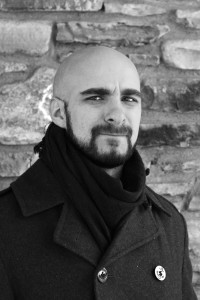On Wednesday, March 16, gunmen entered and open fired on The Bardo Museum in Tunisia killing 19 people and injuring at least 20 more.
The museum, according to CNN, is housed in a 19th century palace, and calls itself “a jewel of Tunisian heritage.” The museum hosts exhibits featuring art, culture and history, marble sculptures, furniture, jewels, and mosaics dating from the back to the Roman and Carthaginian era, including one of the widely known poet, Virgil.
 According to Reuters, a London based news agency, the gunmen, dressed in military uniforms, stepped off of a bus and began open firing on tourists. Two of the gunmen then fled inside the museum with hostages.The two gunmen inside the building were later killed and are believed to be Tunisians, while the other three gunmen are still believed to be at large. Their identities, as well as their motives remain unclear.
According to Reuters, a London based news agency, the gunmen, dressed in military uniforms, stepped off of a bus and began open firing on tourists. Two of the gunmen then fled inside the museum with hostages.The two gunmen inside the building were later killed and are believed to be Tunisians, while the other three gunmen are still believed to be at large. Their identities, as well as their motives remain unclear.
Among the dead were five Japanese tourists and visitors from Poland, Germany, Italy, and Spain, as well as at least one Tunisian native, according to Reuters. In addition to the deaths, there were another 20 tourists and two Tunisians wounded in the attack.
While there is no solid evidence linking ISIS to the attack, many factors are forming suspicion of the influence of the Islamic State. The biggest factor causing suspicion, according to The New York Times, was the celebration of the attacks by ISIS supporters via social media which cited a video released by supporters in December that claimed there were ‘more attacks to come.’ Boubakr Hakim, a Tunisian militant, urged for the support of the Islamic state and claimed responsibility for the assassinations of two liberal Tunisian politicians and warned authorities, “You will not live in safety as long as Tunisia is not ruled by Islam.”
Another one of the largest indicators of the Islamic State’s involvement with the shooting is, according to New York Times, it’s emergence as one of the largest sources of foreign fighters joining ISIS. According to The International Centre for the Study of Radicalization in London, “Up to 3,000 Tunisians are believed to have traveled to Iraq and Syria to fight as jihadists, more than any other country.” While the country has not experienced as much violence as other nations that were part of the Arab Spring, it has experienced its share of outbreaks and protests. The Arab Spring, which took place in Tunisia, sparked protests throughout North Africa and the Middle East and was a revolutionary wave of non-violent and violent demonstrations, protests, and civil wars that took place in the Arab world.
Despite Tunisia’s transition from dictatorship to dictatorship, it’s recent completion of presidential and parliamentary elections, and “ a peaceful handover of political power from one governing party to another,” authorities have struggled to handle periodic attacks by Islamic extremists. According to CNN, in February 2015, Tunisia’s Interior Ministry announced the arrests of about 100 alleged extremists, and “published a video allegedly showing that the group possessed a formula for making explosives and a photograph of ISIS leader Abu Bakr al-Baghdadi.”

